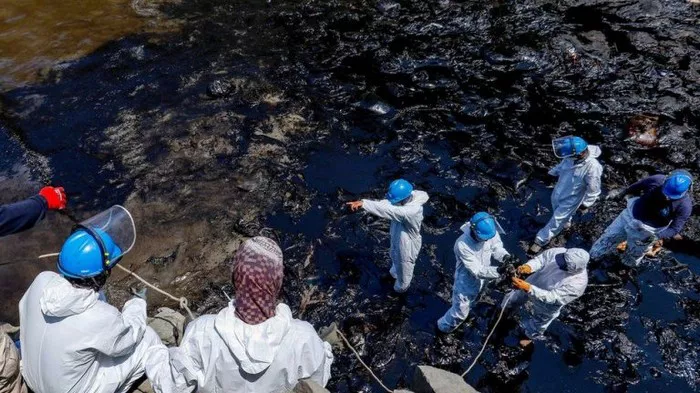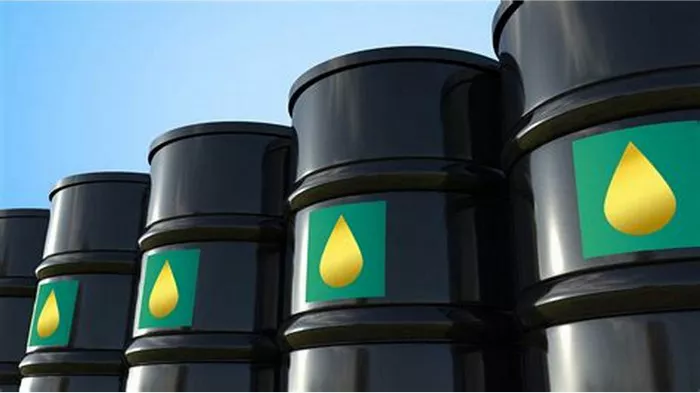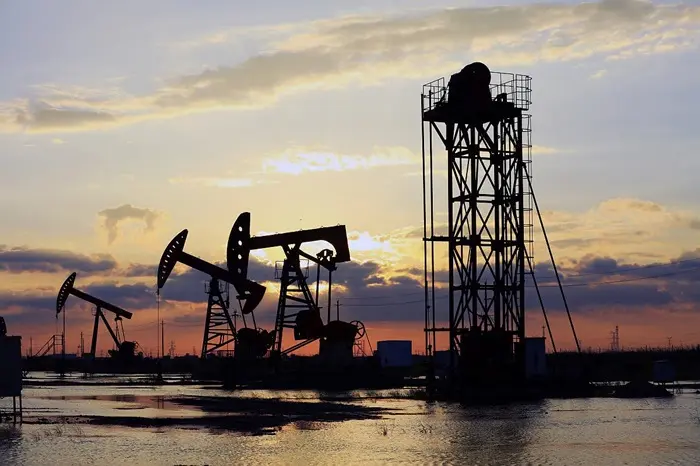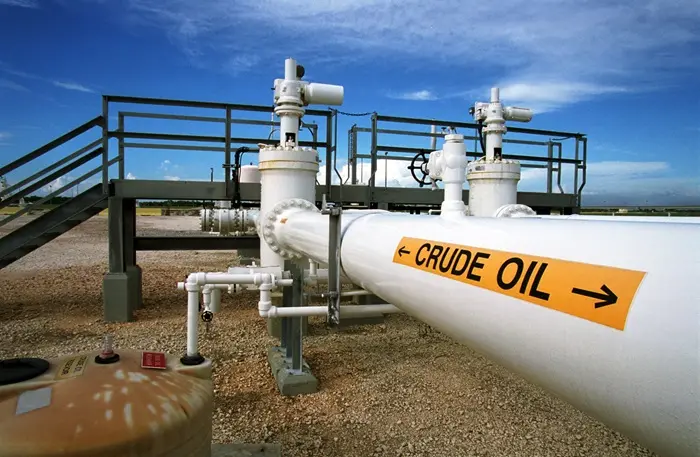The Middle East is a significant player in the global oil industry. This region holds a large portion of the world’s crude oil reserves. These reserves have substantial impacts on the global economy, geopolitics, and energy markets. In this article, we will explore the five Middle Eastern countries with the largest crude oil reserves.
1. Saudi Arabia
Overview of Saudi Arabia’s Oil Reserves
Saudi Arabia is the world’s second-largest holder of proven oil reserves, following Venezuela. The country’s reserves are estimated at about 267 billion barrels. Saudi Arabia’s oil fields are predominantly located in the Eastern Province.
Major Oil Fields in Saudi Arabia
The Ghawar Field is the largest oil field globally. It is located in the Eastern Province. The Ghawar Field alone accounts for more than half of Saudi Arabia’s total reserves. The Safaniya Oil Field is the largest offshore oil field. It significantly contributes to Saudi Arabia’s oil production.
Oil Production and Export
Saudi Arabia is a leading oil producer and exporter. The country produces about 10 million barrels of oil per day. The oil sector accounts for a significant portion of the country’s GDP and government revenue. Saudi Aramco, the national oil company, manages the oil sector. It is one of the world’s most valuable companies.
Impact on Global Oil Markets
Saudi Arabia plays a crucial role in global oil markets. As a key member of the Organization of the Petroleum Exporting Countries (OPEC), Saudi Arabia influences oil production levels and prices. The country’s oil policies impact global supply and demand dynamics.
Economic and Geopolitical Importance
The oil wealth has transformed Saudi Arabia into a major economic power. It has funded infrastructure, healthcare, education, and social services. Geopolitically, Saudi Arabia’s oil reserves provide it with significant influence in regional and global affairs.
See Also: 10 Different Petroleum Products Made From Crude Oil
2. Iraq
Overview of Iraq’s Oil Reserves
Iraq has the world’s fifth-largest proven oil reserves, with about 145 billion barrels. Most of Iraq’s oil fields are concentrated in the southern and northern regions.
Major Oil Fields in Iraq
The Rumaila Field is the largest oil field in Iraq. It is located in the southern region. The Kirkuk Field is another significant field in the north. Both fields have been operational for several decades and contribute substantially to Iraq’s oil production.
Oil Production and Export
Iraq produces approximately 4.5 million barrels of oil per day. The oil sector is vital to Iraq’s economy, accounting for over 90% of government revenue. The State Organization for Marketing of Oil (SOMO) oversees oil exports, which are primarily directed towards Asia, Europe, and North America.
Impact on Global Oil Markets
Iraq’s oil production has a significant impact on global oil supply. The country’s production levels have fluctuated due to political instability and infrastructure challenges. However, recent investments in the oil sector have aimed to increase production capacity.
Economic and Geopolitical Importance
Iraq’s oil wealth is crucial for its economic reconstruction and development. The oil sector provides funding for rebuilding infrastructure and public services. Geopolitically, Iraq’s oil reserves give it strategic importance in the Middle East and global energy markets.
3. Iran
Overview of Iran’s Oil Reserves
Iran holds the world’s fourth-largest proven oil reserves, estimated at about 155 billion barrels. The country’s oil fields are primarily located in the southwestern region.
Major Oil Fields in Iran
The Ahvaz Field is one of the largest oil fields in Iran. It is situated in the southwestern region. The Marun Field and the Gachsaran Field are other significant fields contributing to Iran’s oil production.
Oil Production and Export
Iran produces around 2.5 million barrels of oil per day. The oil sector is a major component of Iran’s economy, providing significant revenue for the government. However, international sanctions have impacted Iran’s ability to export oil and access global markets.
Impact on Global Oil Markets
Iran’s oil production and export capabilities are crucial for global oil supply. Sanctions and geopolitical tensions have led to fluctuations in Iran’s oil output. Nevertheless, Iran remains a key player in the global oil industry.
Economic and Geopolitical Importance
Iran’s oil reserves are vital for its economic stability and development. The oil sector funds infrastructure, healthcare, and education. Geopolitically, Iran’s oil wealth gives it influence in regional and international affairs.
4. Kuwait
Overview of Kuwait’s Oil Reserves
Kuwait holds the world’s sixth-largest proven oil reserves, with about 101.5 billion barrels. The country’s oil fields are concentrated in the southeastern region.
Major Oil Fields in Kuwait
The Burgan Field is the largest oil field in Kuwait and one of the largest in the world. It is located in the southeastern region. Other significant fields include the Greater Burgan Field and the Raudhatain Field.
Oil Production and Export
Kuwait produces approximately 2.7 million barrels of oil per day. The oil sector is the backbone of Kuwait’s economy, accounting for nearly 90% of government revenue. The Kuwait Petroleum Corporation (KPC) oversees oil production and export, with exports mainly directed to Asia.
Impact on Global Oil Markets
Kuwait’s oil production is critical for global oil supply. The country’s production capacity and export levels significantly impact global oil prices. Kuwait is a key member of OPEC, contributing to the organization’s production decisions.
Economic and Geopolitical Importance
Kuwait’s oil wealth has transformed it into a prosperous nation. The oil sector funds public services, infrastructure, and social programs. Geopolitically, Kuwait’s oil reserves provide it with strategic importance in the Middle East and global energy markets.
5. United Arab Emirates (UAE)
Overview of UAE’s Oil Reserves
The UAE holds the world’s seventh-largest proven oil reserves, estimated at about 97.8 billion barrels. The majority of the UAE’s oil fields are located in the emirate of Abu Dhabi.
Major Oil Fields in UAE
The Zakum Field is the largest oil field in the UAE. It is situated offshore in the emirate of Abu Dhabi. The Upper Zakum Field and the Bab Field are other significant fields contributing to the UAE’s oil production.
Oil Production and Export
The UAE produces around 3.5 million barrels of oil per day. The oil sector is a major component of the UAE’s economy, providing substantial revenue for the government. The Abu Dhabi National Oil Company (ADNOC) oversees oil production and export, with exports primarily directed to Asia.
Impact on Global Oil Markets
The UAE’s oil production is crucial for global oil supply. The country’s production capacity and export levels significantly impact global oil prices. The UAE is a key member of OPEC, influencing the organization’s production decisions.
Economic and Geopolitical Importance
The UAE’s oil wealth has transformed it into a prosperous and modern nation. The oil sector funds infrastructure, healthcare, education, and social services. Geopolitically, the UAE’s oil reserves give it strategic importance in the Middle East and global energy markets.
Conclusion
The Middle East is home to some of the world’s largest crude oil reserves. Saudi Arabia, Iraq, Iran, Kuwait, and the UAE are the leading countries in this region with substantial oil reserves. These countries play crucial roles in the global oil industry, influencing production levels, prices, and supply dynamics. Their oil wealth has significant economic and geopolitical implications, shaping regional and global affairs. Understanding the oil reserves and production capabilities of these Middle Eastern countries is essential for comprehending the global energy market and its future trends.
Related topics:































